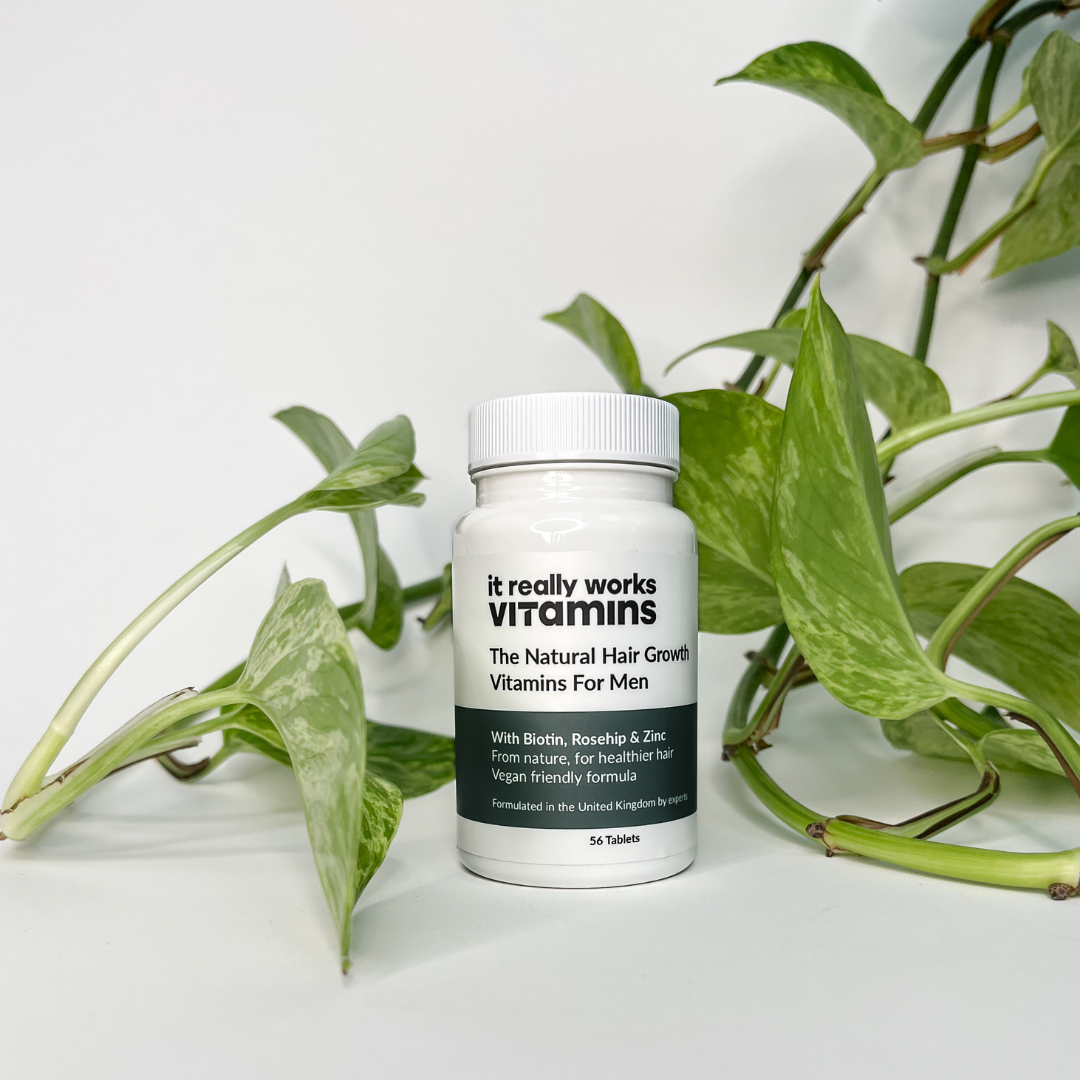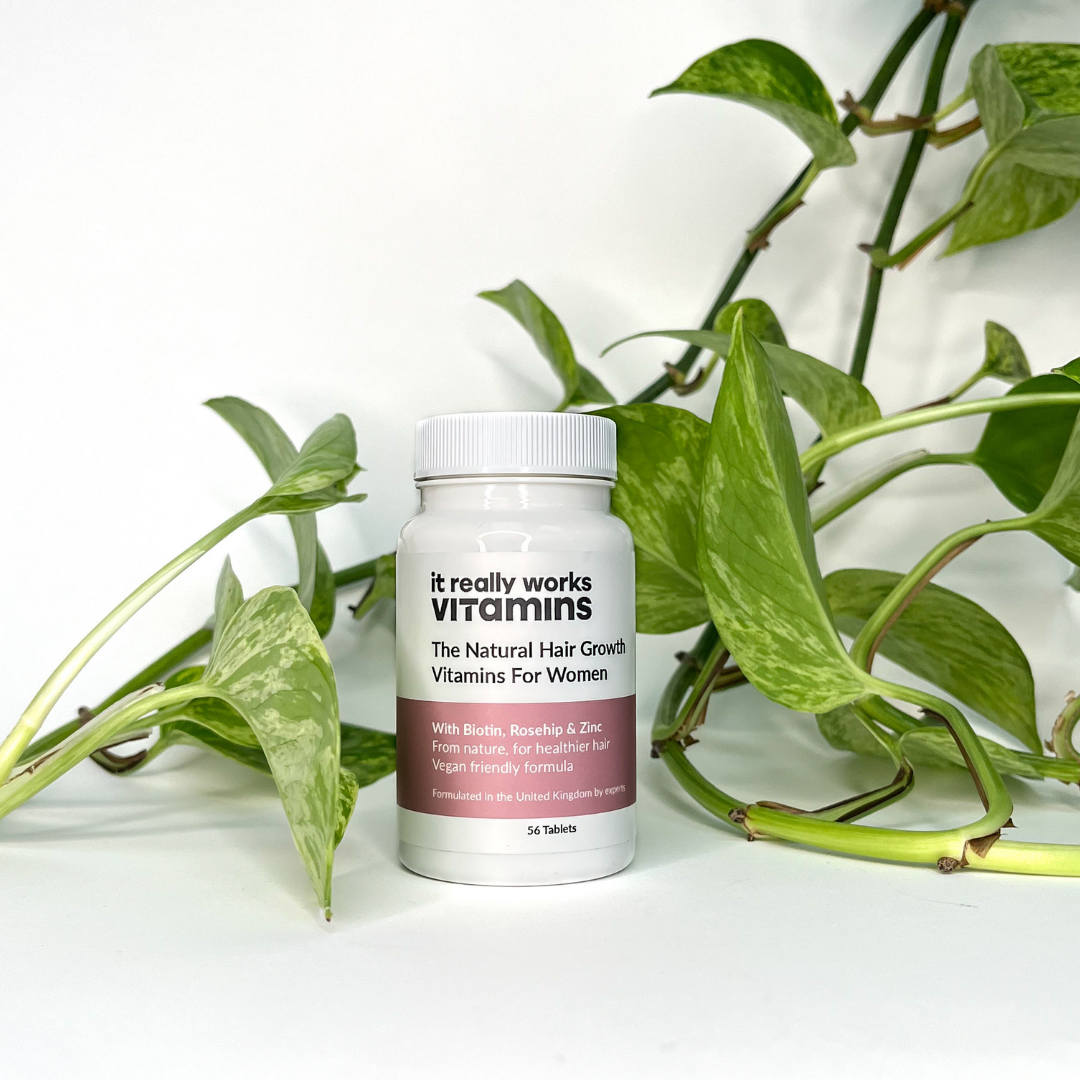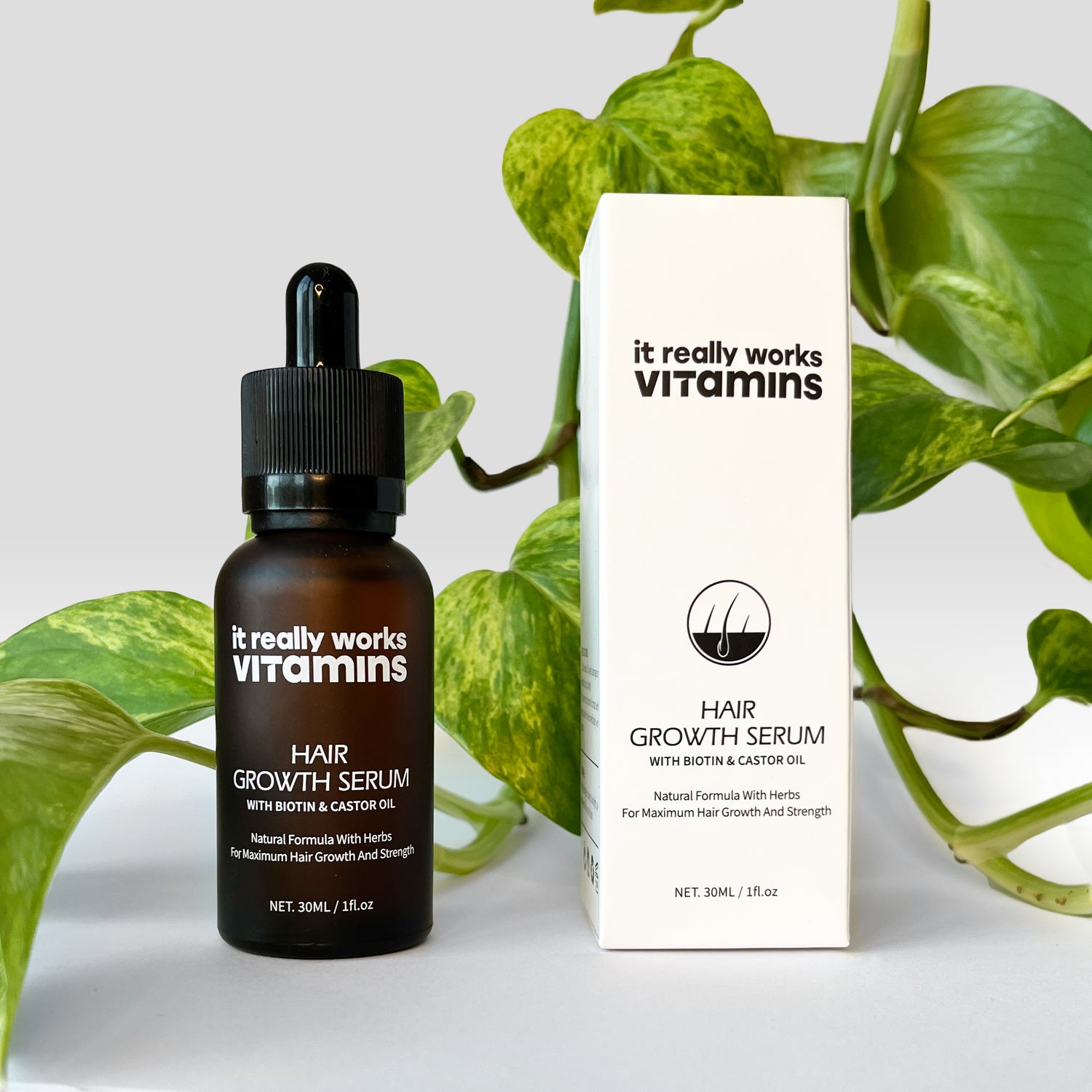Iron

Iron helps our hair to stay healthy by making sure it’s getting enough oxygen.
When you’re not eating enough iron in your diet, then your body can’t produce the hemoglobin in your blood.
What to eat:
Leafy greens
Dark Leafy greens, especially dark ones, are rich in nonheme iron: including
- Kale, spinach
- Swiss chard
Also: lamb, and venison
Liver
Seafood
Vitamin C

Vitamin C and Iron work best when taken together. Foods high in Vitamin C help to ensure that Iron is more effectively absorbed by your body.
Vitamin C is also a powerful antioxidant.
What to eat: Strawberries, sweet potatoes, blackcurrants, blueberries, oranges and papaya.
Vitamin E

Just like Vitamin C, Vitamin E is an antioxidant that can prevent oxidative stress.
This small research study found that people with hair loss experienced a dramatic increase in hair growth after supplementing with vitamin E for 8 months.
To get more Vitamin E, pack your diet with spinach, avocados, sunflower seeds and almonds.
Selenium
Like vitamin E, Selenium acts as an antioxidant.
The Office of Dietary Supplements points out that Selenium is an even more effective as an antioxidant when combined with vitamin E,
Zinc

Zinc is needed for a normal healthy immune system
and it’s necessary for the growth of every cell in our body (including hair cells).
Early signs of Zinc Deficiency is Hair Loss.
So if you’re a women make sure you’re getting 8 milligrams (mg) a day and if you’re a guy, make sure you’re getting 11 mg a day.
Good sources of Zinc are:
Pumpkin seeds, Lentils, meat, spinach, wheat germ, lentils and eggs.
Copper
Foods high in copper include Spirulina, Shitaake Mushrooms, nuts, seeds and lobster.

The B-Vitamins Group

There are 8 B Vitamins and they’re collectively called B Complex Vitamins.
These are:
- Thiamine (B1),
- Riboflavin (B2),
12 . Niacin (B3),
- Pantothenic acid (B5),
- Pyridoxine (B6),
- Folate (B9)
Biotin (B7), and cobalamin (B12).
We’ll talk about Biotin and Cobalamin in just a sec!
All B-Vitamins (apart from Vitamin B12) need to be taken daily as they can’t be stored in your body.
B-vitamins are really important as they help carry oxygen and nutrients to your scalp, which helps to maintain healthy normal hair growth.
An adult should have 2.4 mcg a day.




